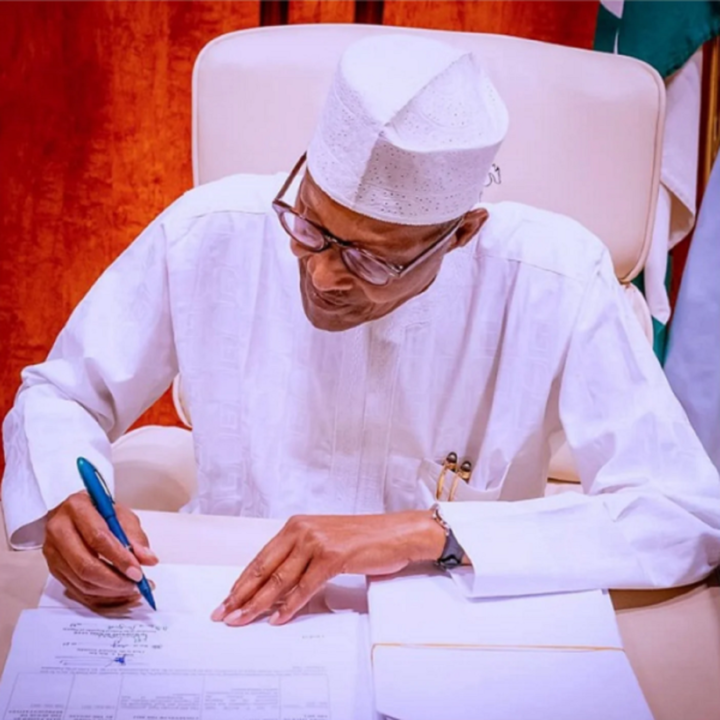Mike Ozekhome has accused Former President Buhari of highly polarising Nigerians along ethnic and religious lines.
NewsOnline Nigeria reports that rights activist and Senior Advocate of Nigeria (SAN) Mike Ozekhome insists that former President Muhammadu Buhari should be blamed for his successor, Bola Ahmed Tinubu’s preference to appoint persons from his ethnic Yoruba language group to key government positions.
This Nigeria news platform understands that Ozekhome, who delivered an address at a symposium on human rights organised by the International Human Rights Commission (IHRC) held in Abuja on Wednesday, claimed that the Buhari-led administration polarised Nigerians along ethnic and religious lines.
ALSO: Full List of 19 Nigerian Governors Paying Above N70k Minimum Wage
The rights activist noted that it was not surprising that President Tinubu was following such a trajectory since it was tolerated by gullible Nigerians when Buhari was at the helm.
“When I hear today the northerners complain that Tinubu has ‘Yorubanised’ Nigeria, with so many Yorubas in the highest places in Nigeria, they are indeed making a point. But the question I would ask is: where were you when Buhari, for eight years, literally ‘northernised’ every position in Nigeria? You were either a northerner or a Muslim,” he said.
“I cried, I cried, I wrote and wrote. I wrote tons of articles. One of the 50 books which I presented on my 67th birthday was titled: ‘How Buhari Mismanaged Nigeria.’ Some people called it ‘na we,’ this is our man, and even if he is riding roughshod over all of us, it doesn’t matter.
“Hear no evil, see no evil because he is our man. Even if it is not benefitting us, the fact that he is our man is sufficient. Once it is no longer our man, we must also take up arms. No country grows like that.”
At the event, themed “Unity in Diversity: Embracing Freedom, Equality, and Dignity for All,” he warned those in positions of authority against compromising the unity of Nigerians for granted on the altar of the pursuit of tribalism, ethnicity, and sectionalism.
He described the 1999 constitution as amended as flawed, adding that there is a need for a new constitution with inputs from Nigerians, irrespective of their ethnic and religious differences, on the way forward for the country.
“We need to redefine ourselves, not the present system where thieves are rewarded with doctorate degrees,” he said.
The Commission’s Ambassador-at-Large and Head of Diplomatic Mission in Nigeria, H.E. Ambassador Dr. Duru Hezekiah, emphasized that this year’s theme presents a significant opportunity, drawing attention to the complexity of human rights linked to the multicultural and multi-ethnic composition of over 250 ethnic groups and more than 500 languages spoken in Nigeria.
He remarked that recurring ethnic and religious conflicts have threatened Nigeria’s national unity and stability, noting that the diversity of Nigeria’s population offers both challenges and opportunities for cultural exchange and understanding, which can promote national unity and cooperation.
According to him, the one-day symposium, held on Wednesday, 11th December 2024, consequently offers a singular opportunity to acquire knowledge and reinforce ties with other stakeholders to promote “Unity in Diversity: Embracing Freedom, Equality, and Dignity for All.”
Additionally, he mentioned that the occasion signifies the official swearing-in of IHRC’s new officials: H.E. Ambassador Dr. Malami Shehu Ma’Aji MFR, who was appointed IHRC Special Advisor on Intergovernmental Affairs for the Africa Region, with Chief John Paul Ochemba serving as IHRC Advisor on Special Monitoring Mission Nigeria, and Dr. Kingsley Nwokoma as IHRC Commissioner in Nigeria, all of whose appointments were duly approved by the IHRC Secretary-General, Prof. h.c. Rafał Marcin Wasik.















